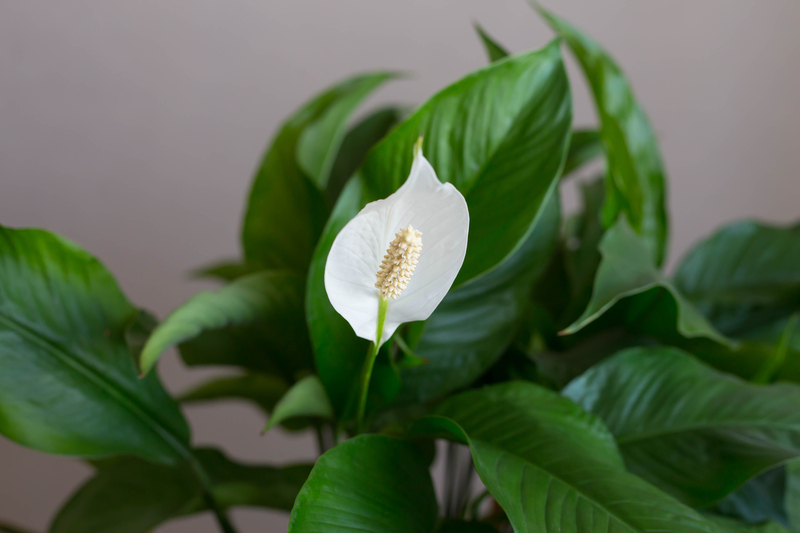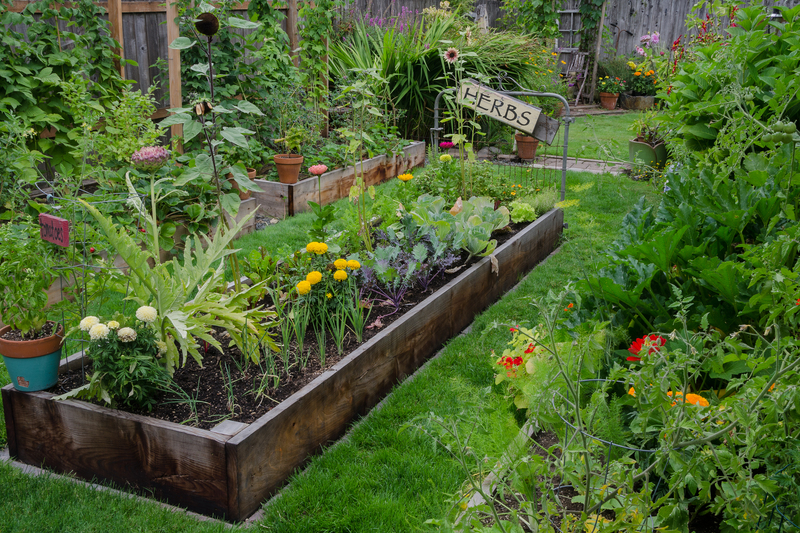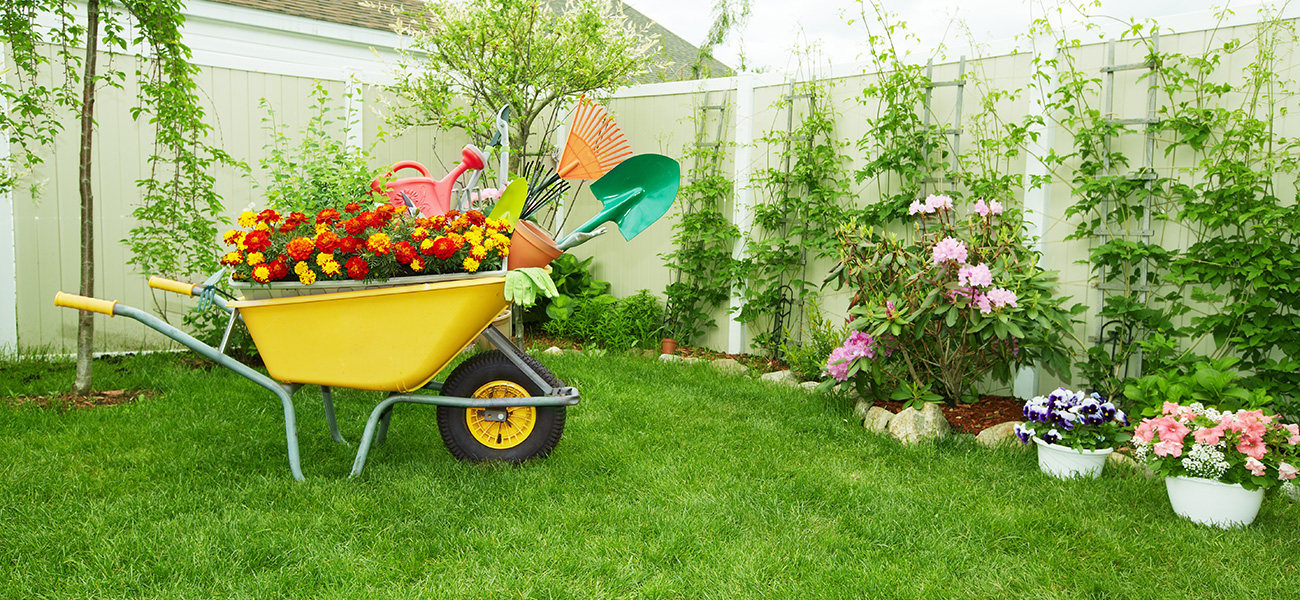Creating Serenity: Zen Garden Ideas for Your Outdoor Sanctuary
Posted on 17/08/2025
Creating Serenity: Zen Garden Ideas for Your Outdoor Sanctuary
In our fast-paced world, the longing for peaceful retreats at home has never been stronger. If you're searching for ways to transform your backyard or any outdoor space into a haven of calm, Zen gardens--or Japanese-inspired gardens--offer the ultimate solution. In this comprehensive guide, we'll explore innovative Zen garden ideas and step-by-step tips for creating your very own outdoor sanctuary that fosters relaxation, mindfulness, and inspiration.
Why Choose a Zen Garden for Your Outdoor Space?
Zen gardens, also known as karesansui or dry landscape gardens, originated in Japan centuries ago. They're esteemed for their minimalist beauty, symbolic elements, and contemplative atmosphere. Introducing a Japanese Zen garden into your backyard not only enhances your home's aesthetics but also establishes serenity and tranquility--turning your outdoor area into a retreat from daily stress.
- Promotes Relaxation: The clean lines, flowing pathways, and gentle sounds encourage mindfulness and calm.
- Low Maintenance: Zen gardens rely heavily on stones, gravel, and carefully chosen plants, making them easy to care for year-round.
- Enhances Outdoor Beauty: Their minimalism creates an elegant and timeless space, blending seamlessly with any landscaping style.
- Encourages Mindful Living: The garden's design invites reflection, meditation, and appreciation for nature's simple forms.

Key Elements of a Tranquil Zen Garden
Before delving into specific Zen garden ideas for outdoor sanctuaries, it's essential to understand the core components that define these peaceful spaces. Balance, symbolism, and harmony guide every design choice.
1. Rocks and Stones
- Symbolism: Represent mountains and islands, forming the backbone of the garden's structure.
- Design Tip: Use a mix of large accent stones and smaller pebbles; arrange asymmetrically for a natural look.
2. Gravel and Sand
- Symbolism: The raked gravel or sand suggests flowing water and often features carefully groomed "waves."
- Design Tip: Create patterns with a traditional bamboo rake; refresh occasionally to maintain tranquility.
3. Water Features
- Symbolism: Water embodies renewal, continuity, and reflection.
- Design Tip: Opt for a simple basin or koi pond; bamboo fountains (Shishi-odoshi) add sound and movement.
4. Plants and Moss
- Symbolism: Greenery brings life, renewal, and a subtle contrast to the hardscape.
- Design Tip: Choose evergreens, ferns, and moss for year-round color; prune shrubs into soft, organic shapes.
5. Pathways and Bridges
- Symbolism: Stone paths direct movement, inviting meditation as you travel through the garden.
- Design Tip: Use irregular stepping stones for a natural, meandering effect.
6. Ornaments and Structures
- Symbolism: Lanterns, gates, and small pagodas add cultural flair and focal points.
- Design Tip: Choose stone or weathered wood pieces that blend seamlessly into the landscape.
Inspiring Zen Garden Ideas for Your Outdoor Sanctuary
Ready to bring Zen serenity to your backyard? These curated Zen garden ideas blend classic elements and modern inspiration to suit both small and large outdoor spaces.
1. Minimalist Zen Courtyard
Transform a modest patio or side yard into a minimalist retreat. Use white gravel as the ground cover and position a few large stones asymmetrically to evoke mountain peaks. A small bamboo water feature completes the tranquil ambiance. Add a simple wooden bench for meditation or reading.
2. Japanese Koi Pond Oasis
For those with more space, incorporate a koi pond surrounded by dwarf maples, moss, and stepping stones. A red arched bridge becomes a stunning focal point. Subdued lighting and a stone lantern add cultural authenticity and magical nighttime appeal.
3. Moss and Gravel Meditation Space
Create a soothing blend of textures with swaths of soft green moss interspersed between raked gravel sections. Use a few sculptural rocks and a weathered Buddha statue to embody peace and contemplation. Plant shade-loving ferns and hostas for added tranquility.
4. Zen Sand Garden for Small Spaces
Even a balcony or small backyard corner can become a Zen sand garden oasis. Place a wooden tray or shallow container with white sand or gravel, arrange a few pebbles, and use a mini rake to make meditative patterns. Add a potted bamboo or bonsai tree for living energy.
5. Hidden Tea Ceremony Nook
Embrace Japanese tradition by setting aside a hidden nook for tea or quiet reflection. Enclose the space with bamboo fences, stepping-stone paths, and a single stone lantern. A low table and tatami mats invite hours of immersion in your personal Zen sanctuary.
6. Modern Zen and Minimalism
Favor clean lines and a monochrome color palette for a contemporary Zen garden. Use slate pavers, minimalist water features, geometric planters, and sparse planting schemes. Subtle outdoor lighting and brushed steel accents finish the sophisticated look.
Step-by-Step Guide: Designing Your Zen Garden Sanctuary
Creating your personal Zen paradise doesn't require professional landscaping experience. With careful planning and attention to detail, anyone can design a space that radiates serenity.
-
Choose the Site:
Assess your outdoor area's sunlight, slope, and existing features. Zen gardens work well in sunny or partially shaded spaces, both large and small. -
Define the Layout:
Sketch a rough plan, integrating the elements--rocks, gravel, water features, pathways, and plants. Aim for asymmetry and organic forms rather than rigid lines. -
Install Hardscape Features:
Place your largest rocks and set any pathways or stone lanterns first, using them as the garden's foundation. -
Add Ground Cover:
Spread white or gray gravel or sand, raking it into intricate patterns symbolizing water and movement. -
Introduce Water Features:
Place a basin, bamboo spout, or small pond where it naturally fits the flow of your design. -
Plant Selection:
Use evergreens, moss, bamboo, or Japanese maple for texture and seasonal interest. Arrange plants in clusters for a natural aesthetic. -
Add Final Touches:
Strategically position garden ornaments, seating, or wind chimes. Ensure the space encourages mindfulness from every angle.
Best Plants for Zen Gardens
Choosing the right Zen garden plants enhances the calm, naturalistic atmosphere. Select species that evoke the Japanese aesthetic and require minimal upkeep.
- Moss - Lends softness and vibrant green color, especially in shady areas.
- Japanese Maple (Acer palmatum) - Offers striking foliage and elegant structure.
- Bamboo - Symbolizes resilience and creates privacy screens or living fences.
- Ferns - Provide feathery texture and thrive in moist, shaded spots.
- Pine (Pinus spp.) - Classic evergreen often pruned into evocative shapes.
- Camelias and Azaleas - Provide seasonal blooms and vibrant color accents.
Remember, simplicity is key. Choose just a few plant varieties, repeating them throughout the space for a sense of unity and order.
Zen Garden Decor and Accessories
Thoughtful decor and accessories are essential to authentic Japanese Zen gardens. They add interest, symbolism, and create focal points that anchor the composition.
- Stone Lanterns (Toro): Provide soft illumination and timeless beauty.
- Bamboo Fountains (Shishi-odoshi): Create gentle, rhythmic sounds that promote mindfulness.
- Bridges: Symbolize journey and change; a small arched bridge becomes a striking accent.
- Stepping Stones: Invite wandering and contemplation along winding paths.
- Buddha Statues or Pagodas: Inspire tranquility and spiritual reflection.
- Wind Chimes: Add soothing, melodic tones on breezy days.
Zen Garden Maintenance Tips for Lasting Serenity
One of the greatest benefits of a Zen-inspired outdoor sanctuary is its ease of care. Here are some tips to keep your garden inviting and harmonious year-round:
- Rake Gravel Regularly: Refresh patterns and remove debris to maintain the "flow."
- Prune Plants: Trim shrubs for clean lines; remove dead or overgrown branches.
- Control Moss and Algae: Keep moss lush, but prevent unwanted buildup on stone or gravel paths.
- Seasonal Check-ups: Inspect water features, lanterns, and paths for wear and address promptly.
- Weed Management: Hand-weed planted areas and gravel to preserve the minimalist aesthetic.
Zen Garden Ideas: Tips for Small Spaces
Not all outdoor sanctuaries require vast lawns or sprawling landscapes. Small Zen garden ideas are perfect for balconies, patios, or townhouse courtyards. Try these compact solutions:
- Tabletop Zen Gardens: Set a small tray of sand with miniature rakes and stones on your deck or window ledge for daily mindfulness.
- Vertical Moss Panels: Mount living moss frames or bamboo trellises along fences or walls to maximize greenery in tight areas.
- Container Water Features: Use a large ceramic pot filled with water, pebbles, and floating lilies as an instant focal point.
- Miniature Stepping Stones: Create a winding path using small round pavers between planters or gravel sections.
Maximizing Serenity: Zen Garden Lighting Ideas
The play of light and shadow is a fundamental aspect of Zen garden design. Enhance your outdoor sanctuary after dark with:
- Soft Solar Path Lights: Highlight winding stone paths without overpowering the natural beauty.
- Stone Lanterns with Candles: Place at focal points or near seating areas for a warm ambiance.
- Uplighting for Trees: Softly illuminate Japanese maples or bamboo stands for dramatic nighttime effects.
- Subtle Pond Lighting: Use underwater LEDs in koi ponds or around water features for shimmering reflections.

Frequently Asked Questions About Zen Garden Design
Can I create a Zen garden in a small urban yard?
Absolutely! Many Zen garden ideas for small outdoor spaces rely on a restrained palette of stone, sand, and minimal planting. Vertical gardens, container ponds, and creative decor allow you to achieve serenity regardless of size constraints.
What is the main difference between a Zen garden and other styles?
Zen gardens prioritize minimalism, symbolism, and structure over lush or colorful planting. Elements like gravel, rocks, and raked sand dominate, while plants remain few but intentional.
Do Zen gardens require a lot of maintenance?
No. With proper design, most Japanese Zen-inspired gardens are low-maintenance. Occasional raking, pruning, and cleaning will keep your sanctuary looking pristine.
Can I add personal touches to my Zen garden?
While authenticity is grounded in tradition, many homeowners personalize their outdoor Zen sanctuaries with cherished ornaments, hidden seating, and chosen plant species. Just remember: simplicity and harmony are key!
Conclusion: Embrace Tranquility in Your Outdoor Sanctuary
Designing a Zen garden sanctuary is a rewarding way to introduce peace, reflection, and beauty into your daily life. Whether you have a sprawling backyard or a compact patio, the ideas and tips shared in this guide can inspire you to create a soulful space brimming with serenity. Begin with the essentials: rocks, water, greenery, and mindful decor. Let nature and intention guide you as you compose your refuge--a haven where you can pause, breathe, and restore your spirit every day.
Start your Zen garden journey today and transform your outdoor space into a sanctuary of serenity and timeless elegance.
Latest Posts
Designing a Magical and Safe Garden Space for Your Kids
Transform Your Garden With These Inspiring Seating Area Ideas
Transforming a Neglected Garden: Your Starting Point



